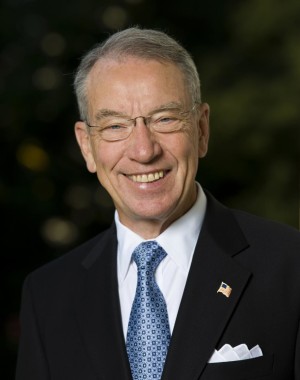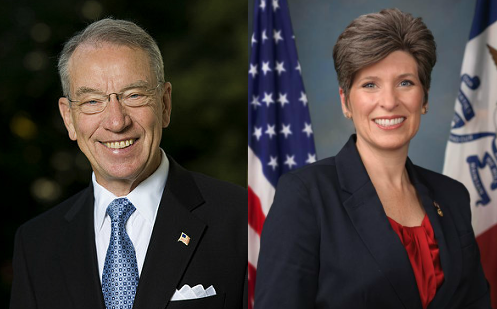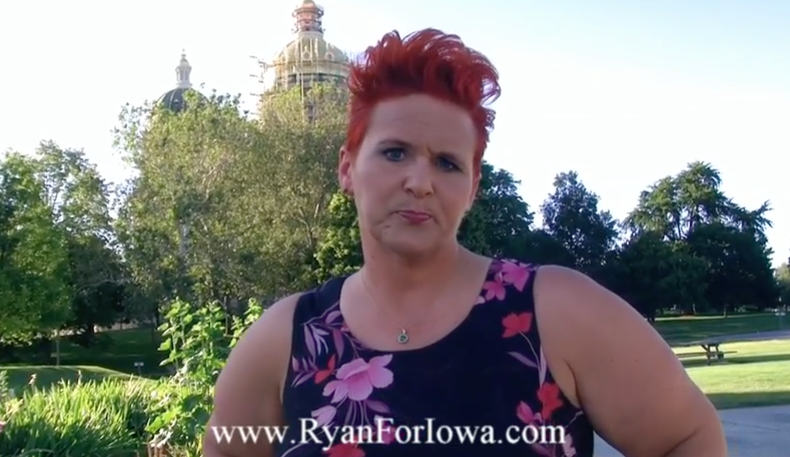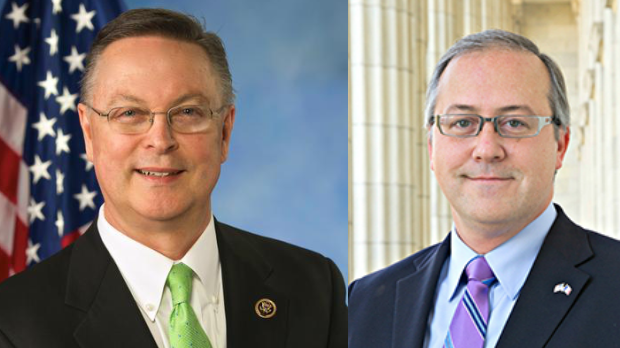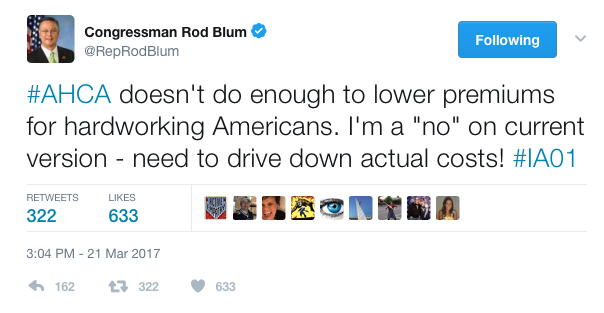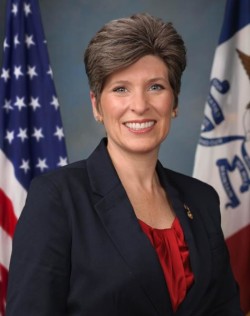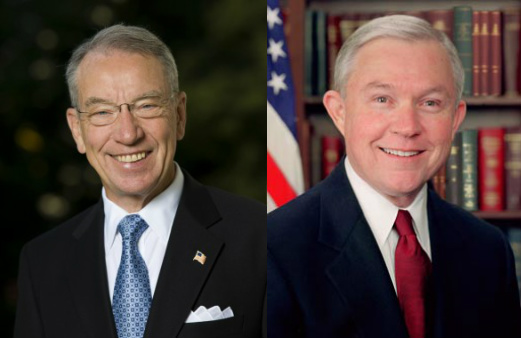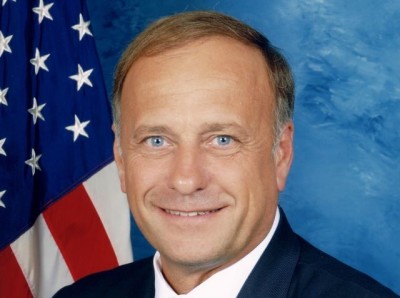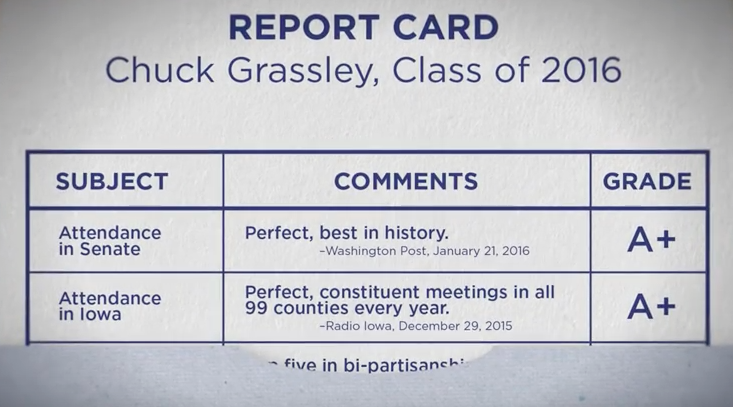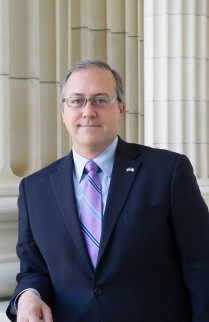Dr. Christopher Peters, the Republican nominee in Iowa’s second Congressional district, announced today that he will not vote for Donald Trump or Hillary Clinton. In a prepared statement, Peters said his “views don’t fully align with either party’s platform” and asserted that neither major-party nominee has exhibited the “character and judgment necessary to be president.” He rejected the “lesser of two evils” approach to voting, which in his view won’t “bring us closer to fixing” a “deeply flawed” political system.
Since launching his campaign in March, Peters has often promised to be an “independent voice” for Iowans, in contrast to five-term Representative Dave Loebsack, who “votes with the Democrats more than 90 percent of the time.” Up to now, he had avoided taking a clear stand on Trump’s candidacy. For example, speaking to Kevin Barry of KGAN-TV in Cedar Rapids in May, Peters said, “The top of the ticket I can’t control, so I’m not going to worry about it. It’s kind of like taking the Serenity Prayer at a certain point. My focus is the second district, specifically Iowa, more broadly the country as a whole. […] I don’t think Mr. Trump cares whether I endorse him or not, because he’s rich, and I’m not that rich. So I think he’ll do just fine. […] I don’t think it affects this race too much, or in any way I can control.”
When Barry pressed Peters on whether he is behind Trump, Peters replied, “He’s got till November to earn my vote. We don’t know who all the candidates are going to be yet, and we don’t know all their policy positions. Again, if I’m an independent voice, and that’s who I am, I’ll vote [for] whoever I want to vote for in November, and I haven’t made that decision yet.”
Peters did not attend the Republican National Convention in Cleveland, nor has he appeared at any Trump campaign rally in Iowa. He spoke at U.S. Senator Joni Ernst’s Roast and Ride fundraiser in late August, but left that event before Trump’s featured speech and photo op with Iowa GOP leaders. A Libertarian candidate for Iowa Senate in 2010, Peters went to Libertarian presidential nominee Gary Johnson’s rally in Des Moines over Labor Day weekend but didn’t endorse Johnson then or now.
In today’s statement, Peters said “Trump’s behavior and temperament are only a part of the problem. He has repeatedly demonstrated a poor grasp of constitutionalism, civil rights, the rule of law, the role of diplomacy versus military interventionism, and even fundamental economics. I should have spoken out against him much earlier, and regret that I failed to do so.” Scroll down to read the full commentary.
Peters and Loebsack are will attend their first candidate forum today at the Coralville Public Library, beginning at 2 pm. IA-02 leans Democratic, with a partisan voting index of D+4. The latest figures from the Secretary of State’s office indicate that the district’s 24 counties contain 171,027 active registered Democrats, 146,108 Republicans, and 172,729 no-party voters.
Although dozens of GOP members of Congress have joined the #NeverTrump ranks, Peters is the only federal candidate in Iowa willing to repudiate the party’s nominee. To my knowledge, only two other Iowa Republicans on the ballot this year have said publicly they will not vote for Trump: Hardin County Auditor Jessica Lara and State Representative Ken Rizer. State Senator Jack Whitver, who is up for re-election in 2018, has called on Trump to step aside without saying whether he would vote for Trump, assuming he remains the nominee. State Senator David Johnson, whose term also runs through 2018, left the Republican Party in June to express his opposition to Trump.
Final note: While numerous Republicans cited their concern for daughters or granddaughters when denouncing the explosive Trump videotape from 2005, I applaud Peters for condemning Trump’s “character deficiencies” as a father of three teenage sons: “if I ever learned that any of them grew up to be men who conduct themselves like Trump, I would be deeply disappointed.”
Continue Reading...

